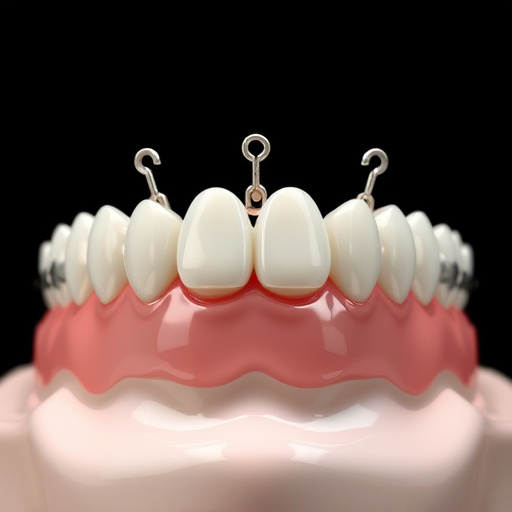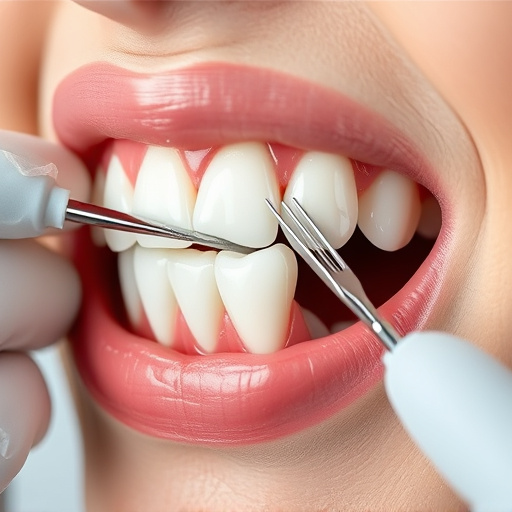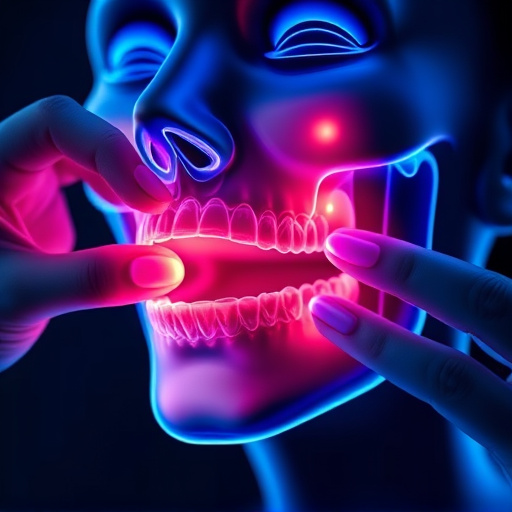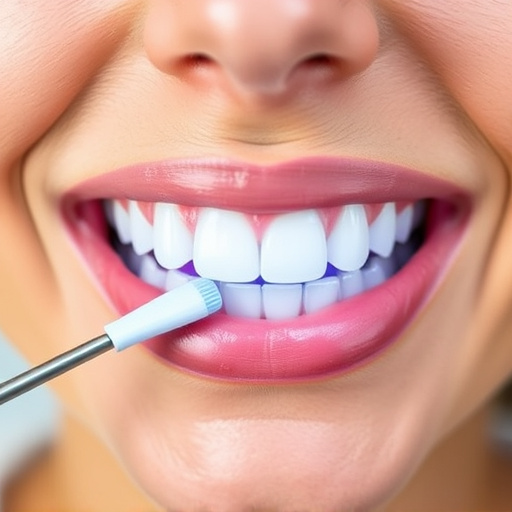Emergency oral surgery procedures are critical in severe dental accidents, offering life-saving interventions like reimplanting knocked-out teeth within hours. These specialists provide a range of treatments from simple bonding to complex reconstruction, with routine dental care aiding in early detection and prevention. Swift action is key to preserving oral health, with aftercare instructions and regular check-ups vital for successful healing.
“In moments of dental emergencies, time is paramount. This article delves into the critical realm of emergency oral surgery procedures, offering a comprehensive guide for swift action during unforeseen dental accidents. Understanding when and why such interventions are necessary can save lives and preserve smiles. From avulsed teeth to lacerated oral structures, we explore common scenarios demanding immediate care. Additionally, this piece provides a step-by-step insight into the procedures, empowering readers with knowledge to navigate urgent oral health crises effectively.”
- Understanding Emergency Oral Surgery: When and Why It's Necessary
- Common Dental Accidents Requiring Rapid Intervention
- The Procedures: Step-by-Step Guide to Emergency Oral Surgery
Understanding Emergency Oral Surgery: When and Why It's Necessary
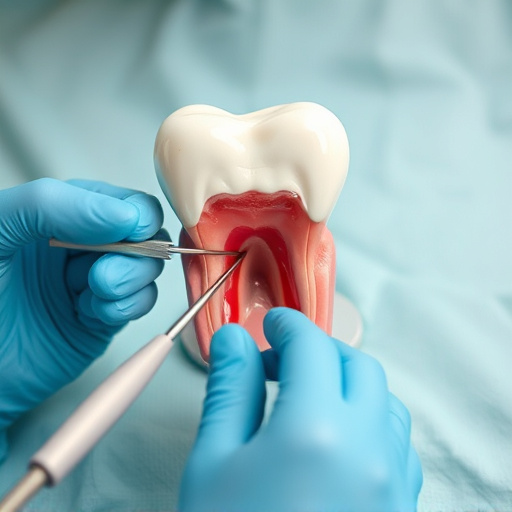
Emergency oral surgery procedures are crucial interventions for addressing severe dental accidents and injuries. These urgent operations are necessary when a patient experiences tooth fractures, dislocations, avulsions (teeth knocked out), or soft tissue lacerations that compromise oral health and function. Time is of the essence in such cases, as prompt action can significantly enhance the chances of successful treatment and preserve the integrity of the affected area.
Oral surgeons are specially trained to handle these emergency situations, offering a range of procedures from simple tooth bonding and fillings for minor fractures to complex reconstruction surgeries for more severe cases. Comprehensive dental care, including routine oral exams, plays a vital role in early detection and prevention of such accidents, allowing for less invasive treatments.
Common Dental Accidents Requiring Rapid Intervention
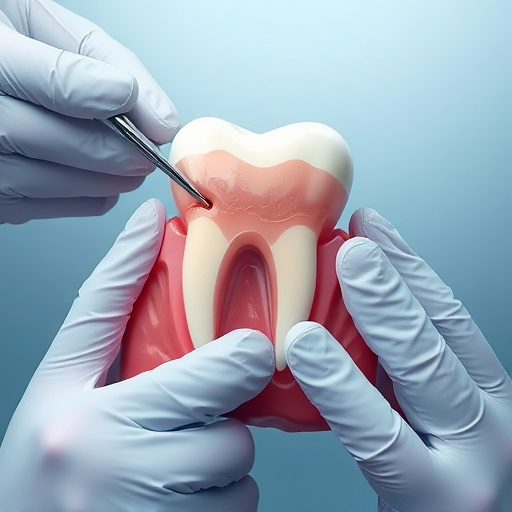
Dental accidents can occur suddenly and require immediate attention to prevent severe complications. Common incidents that demand rapid intervention include teeth avulsions (knocked-out teeth), dental lacerations, and fractures. In such emergencies, time is of utmost importance. Oral surgery procedures are often needed to save the affected tooth or restore oral health.
Rapid treatment is crucial for optimal outcomes in general dentistry. For instance, if a tooth is knocked out, reimplantation should occur within hours to increase the chances of success. Similarly, dental bonding or dental implants might be recommended as long-term solutions to replace missing or damaged teeth, ensuring patients’ comfort and confidence in their oral appearance.
The Procedures: Step-by-Step Guide to Emergency Oral Surgery
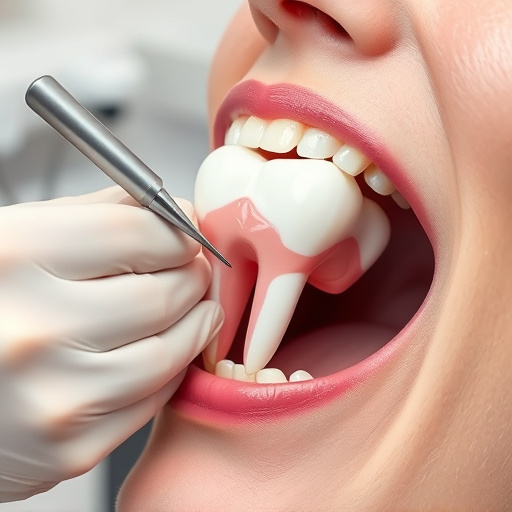
In emergency dental situations, oral surgery procedures play a pivotal role in saving teeth and restoring oral health. When a tooth is severely damaged due to trauma or decay, immediate action is crucial. The first step involves assessing the extent of damage during an urgent consultation with a qualified oral surgeon. If the tooth is entirely knocked out, a swift replacement procedure known as dental implant placement can be life-saving, mimicking the natural tooth’s structure and function.
The process typically begins with local anaesthesia to ensure patient comfort. The surgeon then carefully extracts any remaining fragments of the damaged tooth while preserving nearby healthy teeth. For avulsed (knocked out) teeth, a rapid reimplantation procedure is performed, where the tooth is gently inserted back into its socket. This simple yet effective step can significantly improve the chances of long-term success and prevent bone loss. Post-surgery, patients are provided with detailed aftercare instructions, which may include prescription medications, ice packs for swelling, and dietary recommendations to aid healing, complementing routine oral exams and cosmetic dentistry procedures as needed. Additionally, wisdom tooth removal is a common oral surgery procedure that prevents impaction and the potential for infection or damage to adjacent teeth.
In cases of dental emergencies, prompt action can make all the difference. Understanding when and why emergency oral surgery is necessary, along with recognizing common accidents requiring immediate intervention, empowers folks to navigate these challenging situations effectively. By familiarizing themselves with the basic steps involved in emergency oral surgery procedures, individuals can provide crucial initial aid until professional help arrives. This knowledge fosters a sense of preparedness, ensuring better outcomes and reduced anxiety during potential dental crises.








